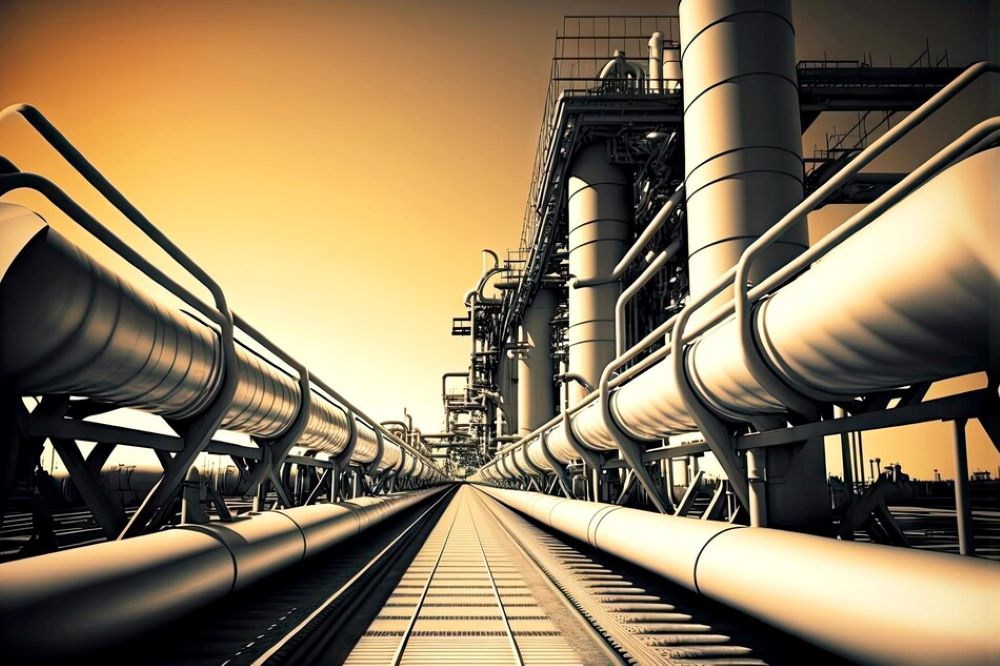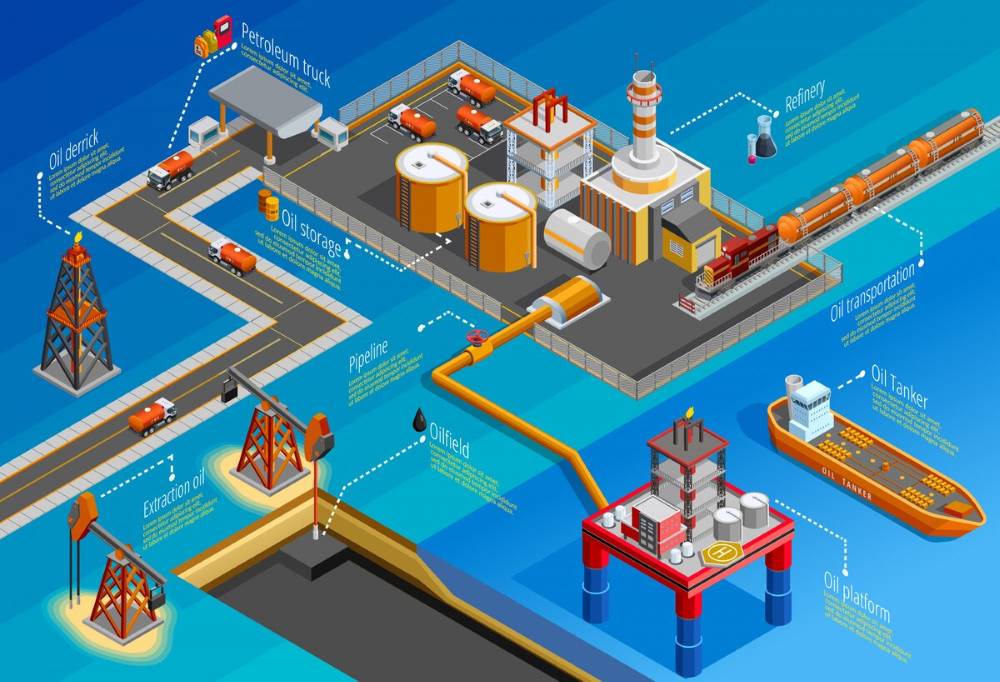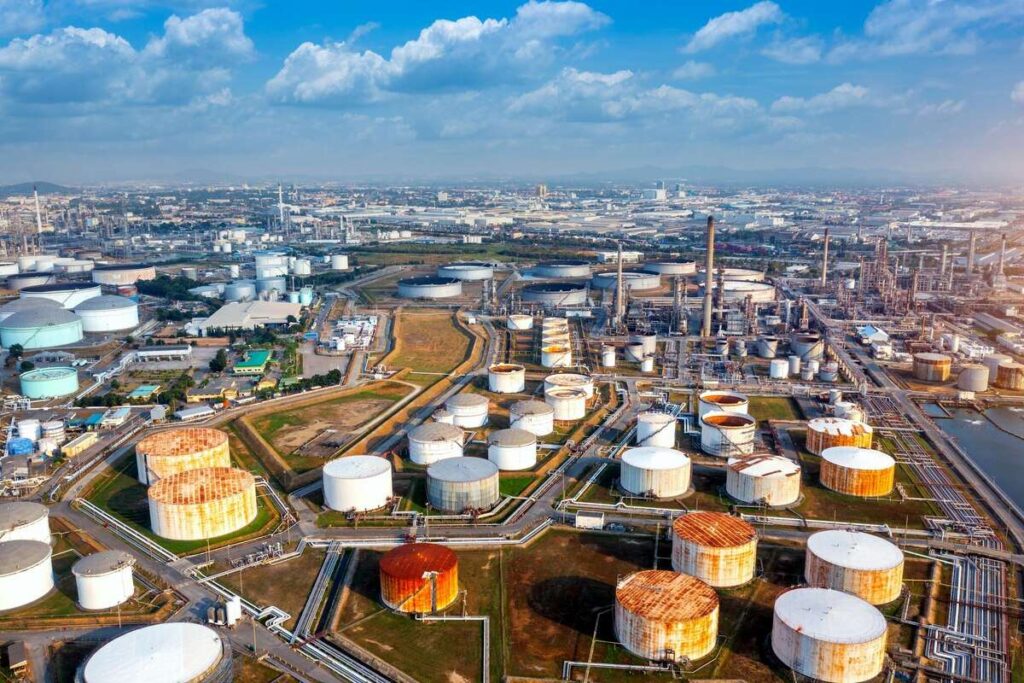The Historical Refinery Oil Supply Globally
Hello there. Today, we will embark on a fascinating journey into the world of oil supply. It’s a topic that impacts our lives in more ways than we often realise, and we’re here to break it down in a friendly and accessible way. So, buckle up, and let’s dive into this informative and engaging discussion about refinery oil supply.
The oil supply story is an exploration, exploitation, and innovation narrative. Over a century ago, crude oil was discovered, setting off a scramble to tap into its vast potential. The United States, Russia, and the Middle East emerged as major players in this unfolding drama, each contributing significantly to the global refinery oil supply.
The Fuel That Powers Our Lives

Imagine a world without oil. It’s not easy. Oil serves as the vital energy source that powers our contemporary society. It powers our cars, heats our homes, and fuels the industries that make everything from our smartphones to our clothing. Without oil, our world would come to a screeching halt.
A Peek into the Past
To understand the current state of oil supply, we need to take a brief journey back in time. The story of oil is rich and storied, filled with pioneers, discoveries, and booms. It all began in the 19th century when enterprising individuals realised that the dark, viscous substance bubbling up from the ground could be turned into a valuable commodity.
The United States, with its famous oilfields in Texas, became a major player in the early days of oil production. Then, in the early 20th century, the Middle East emerged as the “oil capital” of the world, with countries like Saudi Arabia and Iran controlling vast refinery oil reserves.
The Present-Day Landscape
Fast forward to today, and the global oil supply is a complex web of interconnected factors. OPEC, short for the Organization of the Petroleum Exporting Countries, wields significant influence over oil production and prices. It’s like a global oil club where countries coordinate their oil policies.
But the landscape is shifting. Technological innovations, such as hydraulic fracturing (or fracking), have allowed countries like the United States to tap into previously unreachable oil reserves. This has changed the dynamics of global oil supply, reducing the traditional dominance of OPEC.
What’s Shaping the Future?

The future of oil supply is a bit of a crystal ball situation, but we can identify some key factors that are likely to play a big role:
- Geopolitical Tensions: Oil-rich regions, like the Middle East, are often hotbeds of geopolitical tensions. Conflicts can disrupt oil production and send shockwaves through the global economy.
- Environmental Concerns: The world is becoming increasingly aware of the environmental impact of burning fossil fuels. This awareness is driving a push toward cleaner and more sustainable energy sources.
- Alternative Energy: Technologies like electric vehicles and renewable energy sources are gaining momentum. As they become more accessible and affordable, they could reduce our reliance on oil.
- Technological Advancements: Continued innovations in oil extraction techniques could open up new frontiers for refinery oil supply.
Economic Ripples
Refinery Oil prices are like the heartbeat of the global economy. When they rise, it can lead to higher costs for everything from transportation to manufacturing, ultimately impacting the prices of goods and services we rely on. Conversely, when oil prices drop, it can be a boon for consumers but a challenge for oil-producing nations.
Charting roadmap of oil industries

So, what’s the roadmap for the future of oil supply? Here are some friendly suggestions:
- Diversification: Oil-dependent nations should consider diversifying their economies to reduce vulnerability to oil price fluctuations. It’s akin to diversifying your investments instead of relying on a single asset.
- Investment in Renewables: Governments and industries should invest in renewable energy sources like wind and solar. They’re clean, sustainable, and have the potential to reshape our energy landscape.
- Technological Innovation: Keep an eye on those tech wizards. They might develop new and more efficient ways to extract and use oil.
- Global Cooperation: Diplomacy and cooperation among nations are key. Resolving geopolitical tensions can help ensure a stable oil supply.
- Sustainability: Let’s make sustainability a priority. It’s not just about protecting the planet; it’s about securing a better future for all of us.
In conclusion, the oil supply story is a fascinating and ever-evolving one. It’s a tale of human ingenuity, geopolitical manoeuvring, and the quest for energy to power our world. As we navigate this complex landscape, let’s remember that our choices today will shape the future of oil supply and, in turn, the future of our planet. It’s a journey worth taking together.
Pros of Oil Supply:
- Energy Source: Refinery oil is a highly efficient energy source that powers transportation, heats homes, and fuels industries. Its energy density makes it a reliable choice for various applications.
- Economic Contribution: The oil industry is a major contributor to national and global economies. It generates jobs, tax revenue, and economic growth in oil-producing regions.
- Versatility: Oil is used for energy and as a raw material in producing plastics, chemicals, and numerous everyday products.
- Global Trade: Oil is a critical commodity in international trade. Many nations rely on oil exports to earn foreign exchange and support their economies.
- Technological Advancements: The pursuit of oil has driven technological innovations in drilling, extraction, and refining, improving efficiency and safety.
- Energy Security: For oil-producing nations, having substantial reserves can enhance energy security and reduce reliance on external sources.
Cons of Oil Supply:
- Environmental Impact: Burning fossil fuels, including oil, releases greenhouse gasses contributing to climate change. Oil spills can harm ecosystems and marine life.
- Resource Depletion: Oil is a finite resource, and its extraction can deplete reserves over time. Some oilfields have already reached their peak production.
- Geopolitical Tensions: Oil-rich regions often face geopolitical conflicts and instability, disrupting oil supply and leading to international tensions.
- Price Volatility: Oil prices are subject to significant fluctuations, impacting consumer costs, inflation rates, and economic stability.
- Air Pollution: The combustion of oil products releases air pollutants, leading to air quality issues and adverse health effects in densely populated areas.
- Dependency and Vulnerability: Nations heavily reliant on refinery oil can become vulnerable to price shocks and supply disruptions, affecting their economies.
- Transition to Sustainable Alternatives: Transitioning from oil to more sustainable energy sources is necessary to mitigate climate change. This shift poses economic challenges for oil-dependent regions.
In summary, refinery oil supply offers various advantages, such as energy generation, economic benefits, and versatility. However, it has significant drawbacks, including environmental impact, resource depletion, and geopolitical complexities. As the world faces the urgent need to address climate change, finding a balance between the pros and cons of oil supply becomes crucial for a sustainable future.

